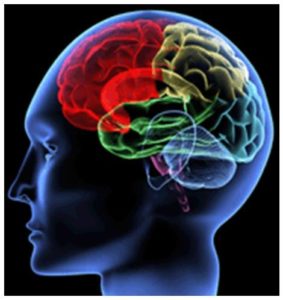
“Our results show that vitamin C deficiency should be considered a risk factor for this severe type of stroke, as were high blood pressure, drinking alcohol and being overweight in our study,” said researcher Stéphane Vannier, M.D., of Pontchaillou — The University Hospital in France.
The experiment measured 65 healthy individuals and 65 individuals who had suffered a hemorrhagic stroke. Of all 130 people, 45 percent had normal vitamin C levels and 45 percent had very low levels. The people who had not experienced strokes were those with the high levels of C in the blood.
According to American Stroke Association, hemorrhagic stroke is less common than ischemic stroke, but it is the deadlier of the two. The two are classified as:
- Ischemic stroke occurs as a result of an obstruction within a blood vessel supplying blood to the brain. It accounts for 87 percent of all stroke cases.
- Hemorrhagic stroke occurs when a weakened blood vessel ruptures. Two types of weakened blood vessels usually cause hemorrhagic stroke: aneurysms and arteriovenous malformations (AVMs). But the most common cause of hemorrhagic stroke is uncontrolled hypertension (high blood pressure).
Although the research is preliminary and not yet published, there have been past studies linking vitamin C with reduced risk of stroke. A 1995 study published in the British Medical Journal, a 2008 University of Cambridge study, and research at the University of East Anglia in the U. K. revealed that women who had highest amounts of flavonoids and vitamin C were linked to the risk reduction of stroke by 19 percent compared to those who consumed the lowest amount of it.
The French researchers recommend that adult men consume 90 milligrams of vitamin C every day and adult women should have 75 milligrams a day.
Here are the warning signs for stroke, acronym FAST:
- Face Drooping – Does one side of the face droop or is it numb? Ask the person to smile. Is the person’s smile uneven?
- Arm Weakness – Is one arm weak or numb? Ask the person to raise both arms. Does one arm drift downward?
- Speech Difficulty – Is speech slurred? Is the person unable to speak or hard to understand? Ask the person to repeat a simple sentence, like “The sky is blue.” Is the sentence repeated correctly?
- Time to call 9-1-1 – If someone shows any of these symptoms, even if the symptoms go away, call 9-1-1 and get the person to the hospital immediately. Check the time so you’ll know when the first symptoms appeared.
S.C. Rhyne is a blogger and novelist in New York City. Follow the author on twitter @ReporterandGirl or on Facebook.com/TheReporterandTheGirl and visit her website at www.SCRhyne.com

